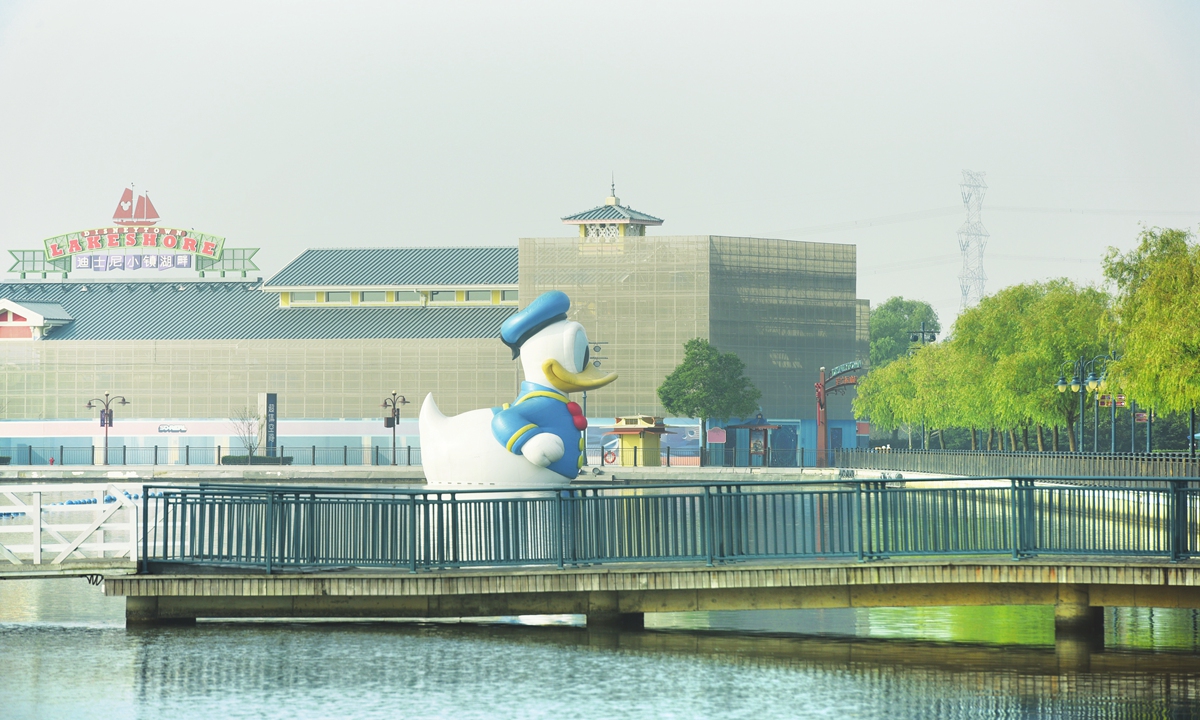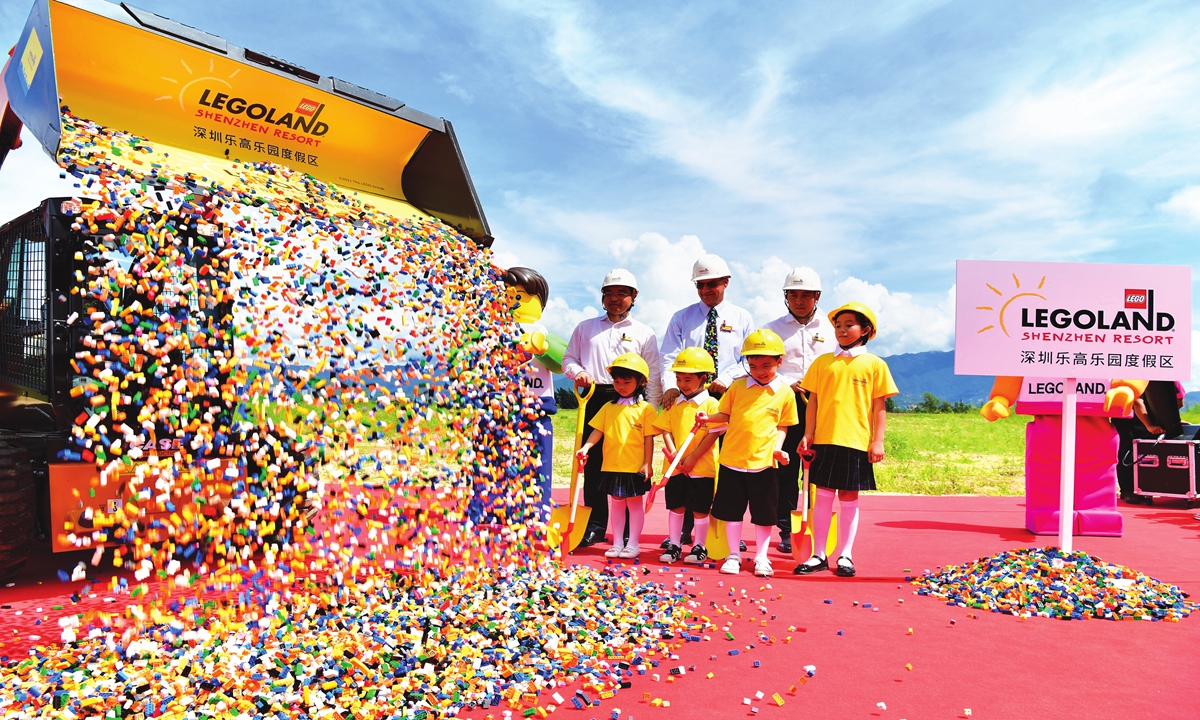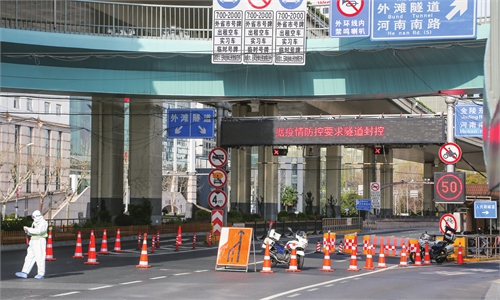
Disneytown on November 1, 2021 Photo: VCG
"Due to the current COVID-19 situation, Shanghai Disney Resort, including Shanghai Disneyland, Disneytown and Wishing Star Park, will be temporarily closed from March 21," Shanghai Disney Resort said in a statement as the city battles its worst COVID-19 outbreak in the past two years.A giant player of China's entertainment market, the closure of Shanghai Disney is a microcosm of the theme park market in China. With the normalization of coronavirus prevention and control measures across the country, sporadic flare-ups have placed significant pressure on theme parks, which rely on advanced planning and stable patronage to keep afloat.
As of Monday, the country reported a total of 27,859 confirmed cases in the latest flare-up. In order to curb the spread of the Omicron variant, many coronavirus-hit cities including Shanghai, Tianjin and Shenzhen have deployed the strictest anti-COVID-19 policies seen to date, in order to reduce community transmissions.
Haichang Ocean Park in Tianjin issued a notice on March 19, announcing that it will be temporarily shut down from March 20, in accordance with local prevention and control measures.
Heavy investment
The heavy investment need to run a theme park equates to high operation and maintenance costs, as parks need to be supported by high traffic flow and consumption -- meaning the venues are particularly vulnerable to restrictive measures which curb movement and social activity.
Data showed that in 2020, Fantawild Group recorded 38.84 percent decline year-on-year in net profit. In the first half of 2021, the company lost 46.04 million yuan ($7.23 million) in net profit after deducting 160-million-yuan worth of government subsidies.
Haichang Ocean Park lost 1.48 billion yuan in 2020. After selling its four theme parks located in Tianjin, Qingdao, Chengdu and Wuhan cities in October last year, the company managed to record a net profit of more than 830 million yuan in fiscal 2021, turning a loss into a profit.
"In order to maintain a stable economic development despite the resurgence of COVID-19, theme parks should explore new and innovative business models, in addition to reducing operational costs and saving expenses," Zhang Yi, CEO of iiMedia Research Institute, told the Global Times on Tuesday.
Amid the impact of the Omicron variant on the theme parks and the entire domestic tourism industry, Disney has attempted to amplify its IP influence. In September 2021, the resort introduced a smart pink fox in the Duffy and Friends series named LinaBell, which has quickly become a "superstar" in China, building up a huge fan base among both children and adults.
Valuable IP has also produced a huge spin-off effect for Disney. By 2021, six IP products worldwide generated economic revenues of over $50 billion, with Disney accounting for 50 percent, of which the Mickey Mouse, Winnie the Pooh and Star Wars generated revenue of $829 billion, $81 billion and $69.4 billion, respectively.
Zhang noted that during the last two years, digital entertainment including online games and livestreaming has become a hot trend, and that theme parks can count on digital technology to grow their revenues.
Prospect of tourism
Despite the impact of the pandemic on China's theme parks, experts and investors are optimistic about the long term prospect of the country's tourism sector.
"China remains a strategic market for Merlin Entertainments, and we continue to see huge interest amongst Chinese consumers looking for location-based entertainment and short breaks. We are focused on the three projects which are under development in Sichuan, Shanghai and Shenzhen, and see the opportunity in the medium term for phasing in another two LEGOLAND resorts in China," Merlin Entertainments said in a statement sent to the Global Times.

LEGOLAND Shenzhen Resort breaks ground on August 26, 2021. Photo: VCG
Moreover, Beijing city officials said that another 2.2 square kilometers of attractions and five hotels are planned for phase II of Universal Beijing Resort, after the theme park received rave reviews from sightseers since opening in September.Zhang noted that the public's willingness to visit theme parks remains strong, so the impact of the flare-up is likely to be short-lived, and domestic theme parks are expected to see a rapid recovery once the virus is brought under control.
According to a forecast released by China Tourism Academy, the number of domestic travel trips is expected to reach 3.98 billion in 2022, with the annual revenue totaling 3.81 trillion yuan, up 16 percent and 27 percent, respectively, year-on-year, recovering to nearly 70 percent of 2019 levels.
Experts also said that coupled with the support of China's third-child policy, the Chinese market represents an increasingly indispensable market for global theme park chains.


